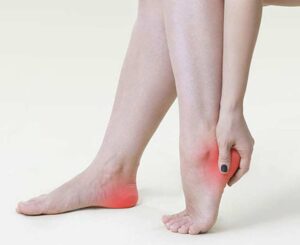 Bedsores, also known as decubitus ulcers or pressure sores, are injuries to the skin and underlying tissue caused by prolonged pressure on the skin. These sores commonly affect people who are confined to a bed or wheelchair for extended periods. If left untreated, bedsores can lead to serious infections and complications. Here’s what you need to know about their stages, symptoms, causes, and more.
Bedsores, also known as decubitus ulcers or pressure sores, are injuries to the skin and underlying tissue caused by prolonged pressure on the skin. These sores commonly affect people who are confined to a bed or wheelchair for extended periods. If left untreated, bedsores can lead to serious infections and complications. Here’s what you need to know about their stages, symptoms, causes, and more.
Stages of Bedsores
Bedsores are classified into four stages based on their severity:
- Stage 1: Red, unbroken skin that doesn’t turn white when pressed.
- Stage 2: A shallow, open sore or blister with some loss of skin.
- Stage 3: Deeper tissue damage, creating a crater-like wound.
- Stage 4: Severe damage extending to muscle, bone, and tendons.
Symptoms
The early signs of bedsores include:
- Discoloration of the skin (red, purple, or blue patches).
- Unusual texture (skin may feel cooler or warmer than surrounding areas).
- Tenderness or swelling.
- Open sores, blisters, or skin loss in more advanced stages.
Causes
Bedsores occur when there is sustained pressure on the skin, cutting off blood flow to affected areas. This typically happens in bony areas like the tailbone, heels, elbows, and hips. Friction or shear forces (when the skin moves in one direction and the bone moves in another) can also cause bedsores, especially in patients who are immobile.
Risk Factors
Individuals at higher risk of developing bedsores include:
- Those who are bedridden or use wheelchairs.
- Patients with reduced sensation (e.g., due to diabetes or spinal cord injuries).
- Elderly individuals with thin or fragile skin.
- People with poor nutrition or hydration.
Diagnosis
Doctors diagnose bedsores by visually inspecting the skin and assessing the depth and severity of the wound. Additional tests, like blood work or wound cultures, may be needed if an infection is suspected.
Treatment
Effective treatment for bedsores includes:
- Pressure relief: Frequent repositioning to reduce pressure on affected areas.
- Wound care: Cleaning the wound and applying dressings or ointments to promote healing.
- Debridement: Removing dead tissue to facilitate recovery.
- Medications: Antibiotics for infections or pain relief.
- Surgery: In severe cases, reconstructive surgery may be required.
Prevention
Preventing bedsores involves:
- Regularly changing positions to relieve pressure.
- Using supportive surfaces like special mattresses or cushions.
- Maintaining proper hygiene and skin care.
- Ensuring adequate nutrition and hydration.
Contact DFW Wound Care Center
At DFW Wound Care Center, we specialize in treating bedsores and other common wounds using advanced techniques like debridement, specialized dressings, and pressure-relieving equipment. We have immediate openings and are accepting new patients at our four clinics in Plano, Lewisville, Irving, and DeSoto. Our skilled team is committed to addressing the unique needs of each patient. For your convenience, you can use our online contact form to get in touch. Don’t wait — reach out today!
Contact us
Schedule an appointment
with our specialists by contacting us or calling our:
